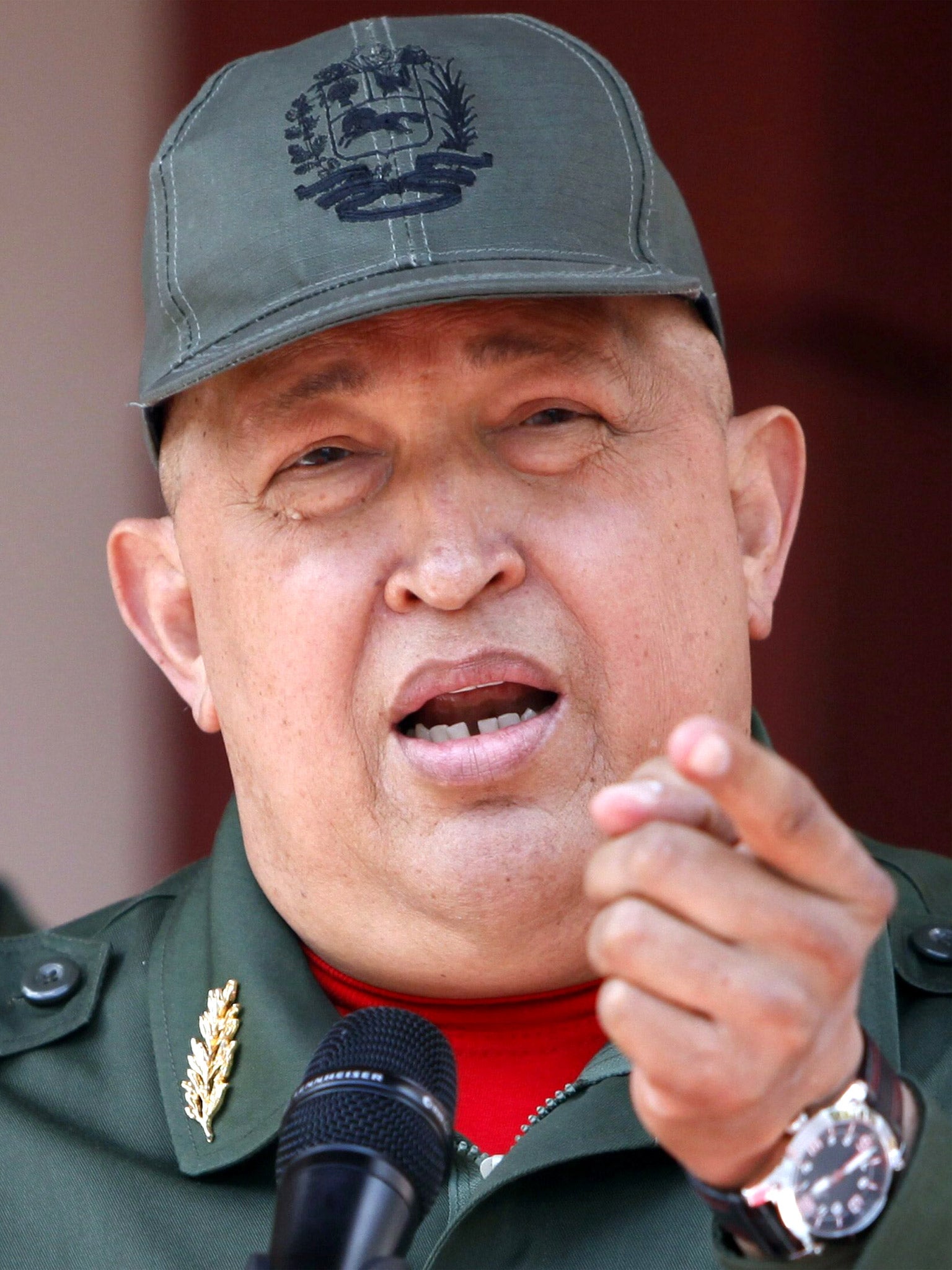Venezuela forced to face prospect of life without president Hugo Chavez
Under the constitution, new elections must be held if the President is too ill to be sworn in

As Hugo Chavez struggles to recover from his fourth cancer operation in 18 months, Venezuelans are digesting the fact that he may be too ill to be sworn in next Thursday for his fourth successive presidential term.
Mr Chavez, 58, has been suffering from complications including a severe respiratory infection and has not been seen in public since shortly before his surgery on 11 December.
Yesterday, Nicolas Maduro, the country’s Vice-President, said after visiting Mr Chavez in Cuba that the president’s health was “complex and delicate” but insisted he was slowly recovering. “We have trust and faith in God and in the doctors,” Mr Maduro added in a TV interview.
But that has left most Venezuelans wondering whether Mr Chavez, who was re-elected to another six-year term last October, will even be able to return to his deeply divided homeland in time for the inauguration.
It also appears to have triggered a constitutional battle. Under the constitution, drawn up in 1999 by an assembly dominated by Chavez supporters, new elections must be held within 30 days if the President dies or is unable to carry out his functions in the first four years of his term.
But now some of the President’s followers have already begun to describe the swearing in as a “formality”. Meanwhile, most opposition politicians, anxious not to be seen to be seeking advantage from the President’s illness, have so far avoided making public statements on the issue.
Henrique Capriles, the centrist 40-year-old regional governor who would be the favourite to run against Mr Chavez’s political heir in any new presidential contest, simply urged Venezuelans to ignore the speculation flying around on social media.
“If we work together it is easier to realise our goals. Let’s not fall into rumours or hate,” Mr Capriles, who last year gave Mr Chavez the toughest re-election race of his 14 years as president, tweeted.
“Let’s love our neighbour. Let’s expend our energy on building, not destroying.”
Yet the rumours have been fuelled by official secrecy over the details of Mr Chavez’s prognosis. Although the President has admitted to having a tumour on his pelvis he has never said what kind of cancer he has.
Join our commenting forum
Join thought-provoking conversations, follow other Independent readers and see their replies
Comments
Bookmark popover
Removed from bookmarks